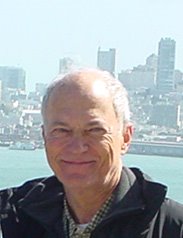We've been hearing these stories all week. A manufacterer of bottled water has hundreds of thousand of bottles of water ready to ship to the disaster zone but is told no, send money instead. Money? To buy water, I suppose. A military unit has ice and water ready to ship but can't get clearance from FEMA.
Tonight, CNN's web site is carrying this AP story, from Baton Rouge, which points blame at Louisiana state officials:
Volunteer physicians are pouring in to care for the sick, but red tape is keeping hundreds of others from caring for Hurricane Katrina survivors while health problems rise. Among the doctors stymied from helping out are 100 surgeons and paramedics in a state-of-the-art mobile hospital, developed with millions of tax dollars for just such emergencies, marooned in rural Mississippi.
A surgeon, Dr. Preston "Chip" Rich of the University of North Carolina at Chapel Hill, said, "We have tried so hard to do the right thing. It took us 30 hours to get here," he said. That government officials can't straighten out the mess and get them assigned to a relief effort now that they're just a few miles away "is just mind-boggling," he said.
While the doctors wait, the first signs of disease began to emerge Saturday: A Mississippi shelter was closed after 20 residents got sick with dysentery, probably from drinking contaminated water. Many other storm survivors were being treated in the Houston Astrodome and other shelters for an assortment of problems, including chronic health conditions left untreated because people had lost or used up their medicine.
The North Carolina mobile hospital stranded in Mississippi was developed through the Office of Homeland Security after the September 11, 2001, terrorist attacks. With capacity for 113 beds, it is designed to handle disasters and mass casualties. It travels in a convoy that includes two 53-foot trailers, which as of Sunday afternoon was parked on a gravel lot 70 miles north of New Orleans because Louisiana officials for several days would not let them deploy to the flooded city, Rich said. Yet plans to use the facility and its 100 health professionals were hatched days before Hurricane Katrina devastated the Gulf Coast, doctors in the caravan said.
Dr. Jeffrey Guy, a trauma surgeon at Vanderbilt University who has been in contact with the mobile hospital doctors, told The Associated Press in a telephone interview, "There are entire hospitals that are contacting me, saying, 'We need to take on patients," ' but they can't get through the bureaucracy.
My prediction: Before the end of this calendar year, we will see class action lawsuits, criminal indictments, or both.
Sunday, September 04, 2005
Subscribe to:
Post Comments (Atom)

No comments:
Post a Comment